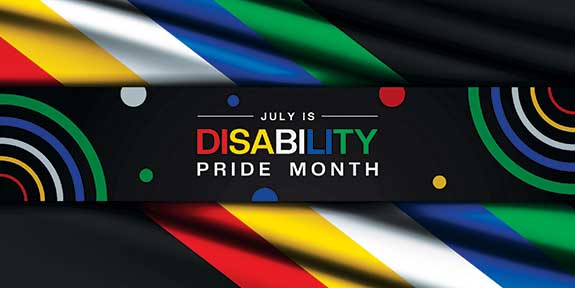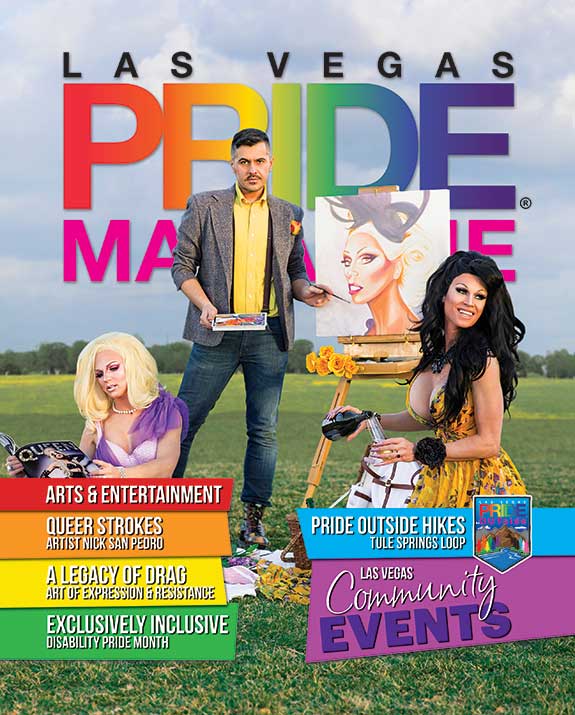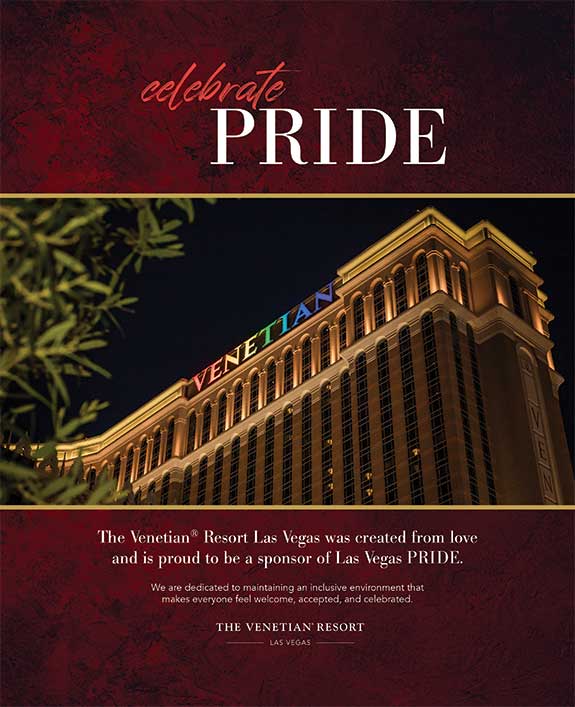Exclusively Inclusive.
By Karen Brain
July is Disability Pride Month. It’s a celebration of the community’s culture, to recognize and honor our people’s history, resilience, achievements, and contributions. It raises awareness and challenges negative stereotypes and misconceptions. Sound familiar? Sounds like LGBTQ+ Pride Month, which occurred in June. I noticed many LGBTQ+ options on TV in support of Pride, as it should be. I hope to find as many for Disability Pride in July as it should be. I did not see many last July.

As usual, this June, I selected a group of LGBTQ+ options to watch. Education is critical, but even more so, to not forget what has happened and what is happening today. The ones I loved most were “The Stonewall Revolution,” “The Out List,” “The Trans List,” “Mama’s Boy,” and “All the Beauty and All the Bloodshed.” As I watched, in anticipation of fewer disability options in July, I decided to identify connections between the LGBTQ+ experiences and my disability experiences (and I would argue, relatable to other communities as well). This does not mean I understand what it’s like to be LGBTQ+ because I’m disabled.
“The reflection [I see] doesn’t look like the person I have always seen myself as.” – Janet Mock, talking about living with a different gender identity than the one assigned at birth. Although I have been physically disabled most of my life, when I look in the mirror or see videos or pictures of myself, I’m still surprised to see I’m disabled. When I dream during my sleep, I’m not disabled. I watched Whoopi Goldberg’s One Woman Show, and to my surprise, she did a bit about living with a disability and being non-disabled in her dream (at 51 minutes). After that bit, I thought, Whoopi gets it.
“I thought about lying to her… I didn’t want her to be in pain too.” – Wade Davis, talking about coming out to his mom. The “privilege” of passing, covering, or remaining closeted certainly comes with its own price. While it is a privilege to be able to be closeted (some don’t have that option), the toll it takes on our heart and soul (and maybe longevity?) can be dangerous. The question is: do the benefits of the closet outweigh the consequences of identity disclosure, or have we just continued down this path without further thought? Is our fear of consequences so great that we cannot approach analysis (we cannot go there because it’s too overwhelming)? It depends on the world we live in, as individuals and as a community. I recently realized how closeted I still am with my disability when my partner asked me why I hide my physical pain and limitations (and emotional response to it) in front of others. Many days, I have pain so great that I cannot walk and breathe at the same time. At home during those times, I cry and maybe push through my pain to do the chores I feel I must do or ask my partner for more help than usual. But when someone comes over, or I’m away from home, I put a smile on my face as I hold my breath to take as many steps as I can, and say “I’m alright” when others ask, “How are you?” (Some days I’m not in that much pain; I’m not always hiding my truth when smiling.) Why do I do that? I didn’t realize I did. I had to think about it.
I learned very early in my disabled life that people are uncomfortable with pain and suffering (try living with it!), and the more they love you, the harder it is for them to see you suffer. So, I hide my pain to spare theirs. Also, people don’t want to be around sadness and anger all the time. I learned in many ways what the preferred appearance is and was trained for years to appear as preferred. But that appearance is not necessarily my truth. So, I hide mine when I feel the need. I might choose to walk when I probably should use my wheelchair. Much in this world is inaccessible. “FOMO” and the need for inclusion are real. I don’t want people to make assumptions about what my needs are without communicating with me. I don’t want them to stop inviting me or to start avoiding me because they saw me use a wheelchair a few times, and now they assume I always require it. Plus, I will likely need help sometimes. I’ll catch more with honey than vinegar, where I’ve learned ‘honey’ is appearing independent and ‘vinegar’ is appearing dependent. (To me, ‘vinegar’ is constantly asking me if I need help, ‘honey’ is letting me know you’re available if/when I may ask for help.)
My closeted behaviors have become innate. I am a Supercrip. It’s a term similar to “model minority” or Black Superwoman Complex. But sometimes my emotions overflow; I try to save them for the comfort of my home. When my partner said, “I’d like to see more of your smiles and happiness too,” what I heard was that I should be more closeted at home too, which made me very sad. But his point was, why do I appear one way in private, and another with others? Sometimes I’m afraid to show my truth; sometimes it benefits me to be closeted. Regardless, it’s frustrating for my partner, as if I live two different lives.
“Drugs were my refuge… A way for me to cope… Drugs gave me the strength to survive.” – Bamby Salcedo. During the opioid epidemic, people with my diagnosis (and many others) were given narcotics like harmless candy to manage pain. I watched several peers try to balance pain levels with the number of candies Dr. Pill Pusher provided. For some, what started as pain management became a way to cope with disabled life, and then became an addiction. One night, I saw a friend faceplant into her soup at dinner and never regained sober consciousness that night. After a couple of years, she disappeared. I don’t know what happened to her, but I can guess.
“Someone [at church] said to me that if I didn’t change how I was, I would be asked to leave. God loves all, but you’re telling me because I’m this way, I can’t be here.” – Twiggy Pucci Garcon. Throughout my life, several people have suggested my disability was a punishment from God. I do not agree. I remember in high school my friend’s stepfather, who was a church pastor, beat him as a punishment for being gay. I remember thinking that would never be my God. The more I hear people speak positively about their religion while speaking negatively about LGBTQ+, or any other community for that matter, the further away from their faith I want to be. I don’t believe in religion because it’s human-made, but my disability-related experiences are why I’m certain there is a higher power.
“The idea that any one group of people gets to decide who is equal and who is not, and make laws creating gradations of citizenship and acceptance in this country, or anywhere for that matter, is immoral. – Danielle Moodie. It amazes me that any human could be so selfish and arrogant as to determine that a group of people is lesser. Or to make decisions about and for a community they are not a member of, without that community’s input. Those who witness this and choose to allow it or remain silent are just as outrageous.
“In a society where there are two sets of rules for different kinds of people, you’re sending a message that those people [without] rights are somehow lesser… The world looks at all of us [LGBTQ+] and sees us as ‘Gay.’ So, we need to be cohesive and fight as one community.” – Cynthia Nixon. 100% and I would add to that, I think ‘we’ includes people with disabilities, people of color, anyone who has been bullied, experienced discrimination, anyone whose rights have been denied or violated, anyone who has lost a loved one because of such behaviors, etc. You might be thinking, that’s almost everyone. Correct. If we all joined the fight together to protect each other and those unable to fight, and say “NO MORE,” I think we’d win. Don’t you see we’re all fighting the same fight?
“No, thank you, Patriarchy. My strength comes from my femininity, and my femininity is not confined to just my body.” – Alok Vaid-Menon. They’re spot-on and make interesting points throughout their interview. They talked about Western culture being obsessed with the body. We associate masculinity with strength, and gender with genitalia; to think differently seems mind-blowing. We’re so rigid, unable to think outside of the box. We associate disability with weakness, an unfortunate circumstance to pity, hide, deny, or try to fix. And yet I’m certain my strength comes from my disability. Living with a disability develops the skill to think outside of the box, as we adapt to a world that excludes us, creating a different lens with which to observe the world.
“Mainstream Middle America, who doesn’t get out and witness a lot of diversity, I feel like they get that diversity through television.” – Neil Patrick Harris. In general, yes. Please recognize that this assumes the selected actors are diverse, the stories and characters are diverse, and Mainstream Middle America has access to such programming and chooses to watch it. I don’t find many authentic disability options to watch. We’re historically portrayed as helpless and lesser, or superhero inspirations, or we “overcome” disability to restore an able-body, usually played by non-disabled actors. However, I’m seeing more authentic options lately, which gives me hope!
“Being a gay filmmaker helps you see [others] and their differences, and to have empathy for what their differences do to their character.” – Dustin Lance Black. Agreed. I look forward to more disabled filmmakers, too. He was close to his mother, who lived with physical disabilities due to polio. Once out to her, she said to him, “Why would you choose [to be gay]?” To which he pointed to her leg braces and crutches and said, “Why would you choose those?” Exactly.
“My imagination saved me. Art has consistently saved my life, and sort of rescued me from darkness.” – Laverne Cox. Same, girl. Same. My heart and soul light up and smile whenever I’m in an artistic environment. In such uncertain times, we must continue providing art and creative environments to let those around us know we stand together to find the light.
“You’re not allowed to have that much success and to squander it. You have to harness it and use it.” – Christine Quinn. I would say the same about privilege, too. Moving forward, I hope everyone practices bridge-building activism, to use a term from Dustin Lance Black’s Mama’s Boy documentary. It’s a strategy for social change emphasizing human connection across differences, building relationships, and finding common ground. It involves intentionally fostering understanding and collaboration between groups who may be divided by political, social, or economic factors. So, what are you doing with your success and privileges?
This article was originally published in the 2025 Arts & Entertainment Issue of Las Vegas PRIDE Magazine, and can be read in its original format here.


